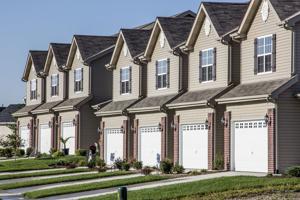Michigan has 13th highest property taxes in nation

(The Center Square) – Michigan has the 13th highest property taxes paid as a percentage of owner-occupied housing value in 2019, says a study from the Tax Foundation.
In calendar year 2019, the most recent data available, here are the states with the highest effective rate on owner-occupied property:
New Jersey: 2.12%Illinois: 1.97%New Hampshire: 1.89%
Lowest effective rates:
50. Hawaii: 0.31%,49. Alabama: 0.37% and48. Louisiana and Wyoming: 0.51%
A Pew Trust report released July 8 explains property taxes comprise 61% of revenue levied for many cities and counties. Many states restrict taxing limits via rate limits, assessment limits, and levy limits.
Michigan imposes all three local tax limits. Property tax limitations in Michigan have diminished local revenue, the report says. Property values fall during recessions but rebound with the economy.
A 2018 analysis by Michigan’s Treasury Department showed that while the state’s overall local fiscal health has improved since the Great Recession, at least 72 communities remain in financial distress.
The report notes that after property taxes peak in 2008, taxable values declined until 2012, and then climbed for three years. Still, total taxable value statewide fell from $363 billion in 2008 to $316 billion in 2012, a 13% drop.
The Headlee Amendment restricts growth in the taxable value of an individual parcel, while Proposal A requires rate reductions when the local housing market grows substantially. Proposal A limited growth on the taxable value of individual parcels to the lesser of inflation or 5%, and it reset taxable value of a property when it’s sold or transferred, which is equal to half of the property’s cash value.
More than a decade later, some communities haven’t seen property tax revenue return to 2008 levels, even though real estate values have recovered.
For this reason, Michigan government leaders in December 2020 advocated for amending the relationship between the Headlee Amendment and Proposal A.
Michigan’s local governments are constitutionally required to balance their budgets, which is harder without cutting public services when tax revenue drops.
The question is how to ensure communities reap enough tax revenue to balance budgets and provide public services without overtaxing residents.
Anthony Minghine, deputy executive director of the Michigan Municipal League, notes: “[E]veryone has a stake in having communities that work and function appropriately.”
Disclaimer: This content is distributed by The Center Square

